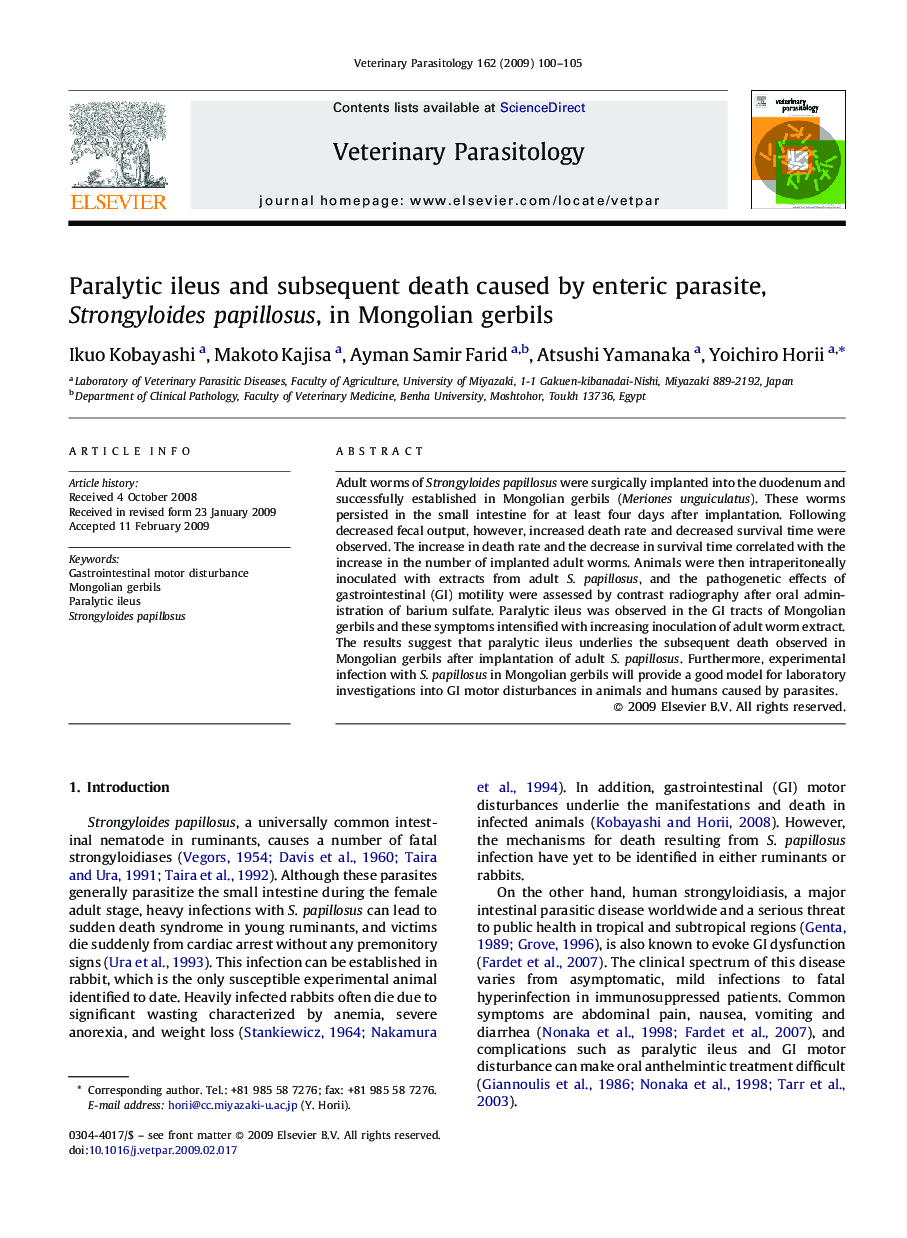| Article ID | Journal | Published Year | Pages | File Type |
|---|---|---|---|---|
| 2471062 | Veterinary Parasitology | 2009 | 6 Pages |
Adult worms of Strongyloides papillosus were surgically implanted into the duodenum and successfully established in Mongolian gerbils (Meriones unguiculatus). These worms persisted in the small intestine for at least four days after implantation. Following decreased fecal output, however, increased death rate and decreased survival time were observed. The increase in death rate and the decrease in survival time correlated with the increase in the number of implanted adult worms. Animals were then intraperitoneally inoculated with extracts from adult S. papillosus, and the pathogenetic effects of gastrointestinal (GI) motility were assessed by contrast radiography after oral administration of barium sulfate. Paralytic ileus was observed in the GI tracts of Mongolian gerbils and these symptoms intensified with increasing inoculation of adult worm extract. The results suggest that paralytic ileus underlies the subsequent death observed in Mongolian gerbils after implantation of adult S. papillosus. Furthermore, experimental infection with S. papillosus in Mongolian gerbils will provide a good model for laboratory investigations into GI motor disturbances in animals and humans caused by parasites.
